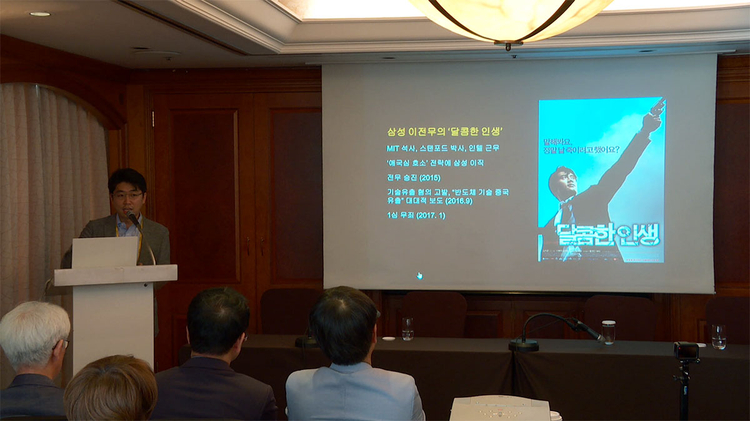
Where Should Korean Investigative Journalism Head to?
2018년 10월 08일 17시 13분
[This article was written by student reporters of IJAsia18.]
What will the IJAsia conference look like 10 years from now?
Alan Soon, Co-Founder of Splice Newsroom, has a particularly bold proposition: the “J,” the word “journalism,” in IJAsia will not last another decade. “What is ‘journalism,’ really?” Soon asked. “I think the label is keeping us in a little box. It stops us from trying out new ideas.”
At the New Models and Startups panel at the Third Asian Investigative Journalism Conference on October 5, 2018, Soon, Irene Liu from Google News Lab and Sasa Vucinic, Co-Founder and Managing Partner of North Base Media, discussed how journalists must fundamentally transform their understanding of their work, embracing two areas they might otherwise look down on: Technology and business.
Big tech companies are not diametrically opposed to journalism, though reporters who cover technological abuses are understandably skeptical of them. According to Liu, for example, Google believes that if journalism doesn’t survive, its business model is endangered as well. The company’s News Initiative isn’t just feel-good work — it sees the continued success of the news industry as a crucial business problem it must help solve with technology.
Liu emphasized that journalists and tech companies have to listen to each other, adding that she’s attended IJAsia18 to learn from journalists’ experiences and bring their insights back to Google.
“Continue to be vocal,” she urged. “Journalists might not be savvy with technology, and technologists aren’t as savvy with journalism. There needs to be understanding on both sides.”
Vucinic cited the Washington Post as an example of mutually beneficial synergy between journalists and technologists. After Amazon CEO Jeff Bezos bought the publication, Vucinic said, “it became a new company.” After the Post developed a new content management system, for example, it then sold it to other publications. “What old media company would ever do that?” Vucinic asked.

Journalists often fail to recognize and respect business acumen, Vucinic observed, saying that,“there is no Pulitzer for media management.” An important first step in developing successful business models for news organizations, therefore, requires that newsroom leaders emphasize these skills.
Soon believes, for example, that journalists can learn valuable lessons from digital marketers. The industries both need to deliver the right content to the right audiences, though their ultimate goals are very different. One digital marketing strategy Soon introduced is microtargeting, or using data to optimize content for individuals. Though he acknowledged that the approach has been controversially misused, he believes that it’s worth looking at to ensure that “you are able to get content in front of people care about it.”
Innovative journalism models, however, may require shifting how organizations see the value in reporting. News contains a wealth of information, Liu said, that publications aren’t yet fully leveraging — but other businesses are.
“It kills me when industry marketing reports sell for $1,000 a copy, and all they’re doing is writing through news articles,” Liu lamented. “It kills me when textbooks sell for hundreds of dollars, but they’re outdated as soon as they’re printed and they’re based off news articles.”
report : Emma Stiefel
뉴스타파는 권력과 자본의 간섭을 받지 않고 진실만을 보도하기 위해, 광고나 협찬 없이 오직 후원회원들의 회비로만 제작됩니다. 월 1만원 후원으로 더 나은 세상을 만들어주세요.